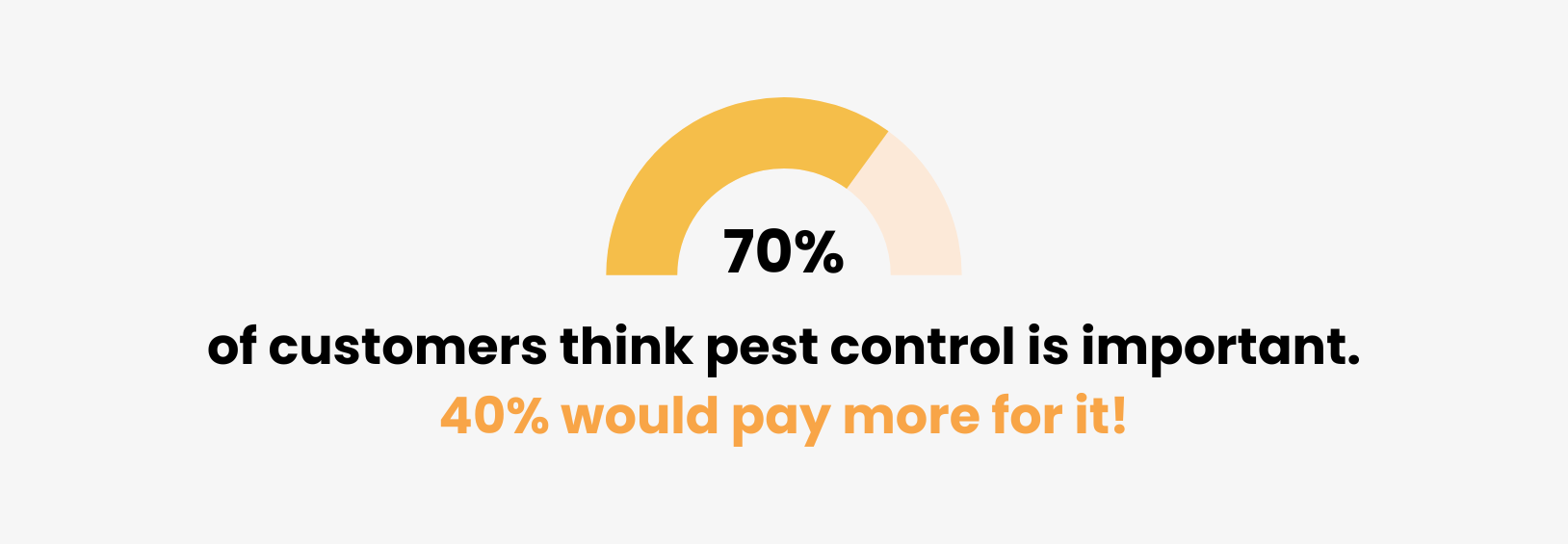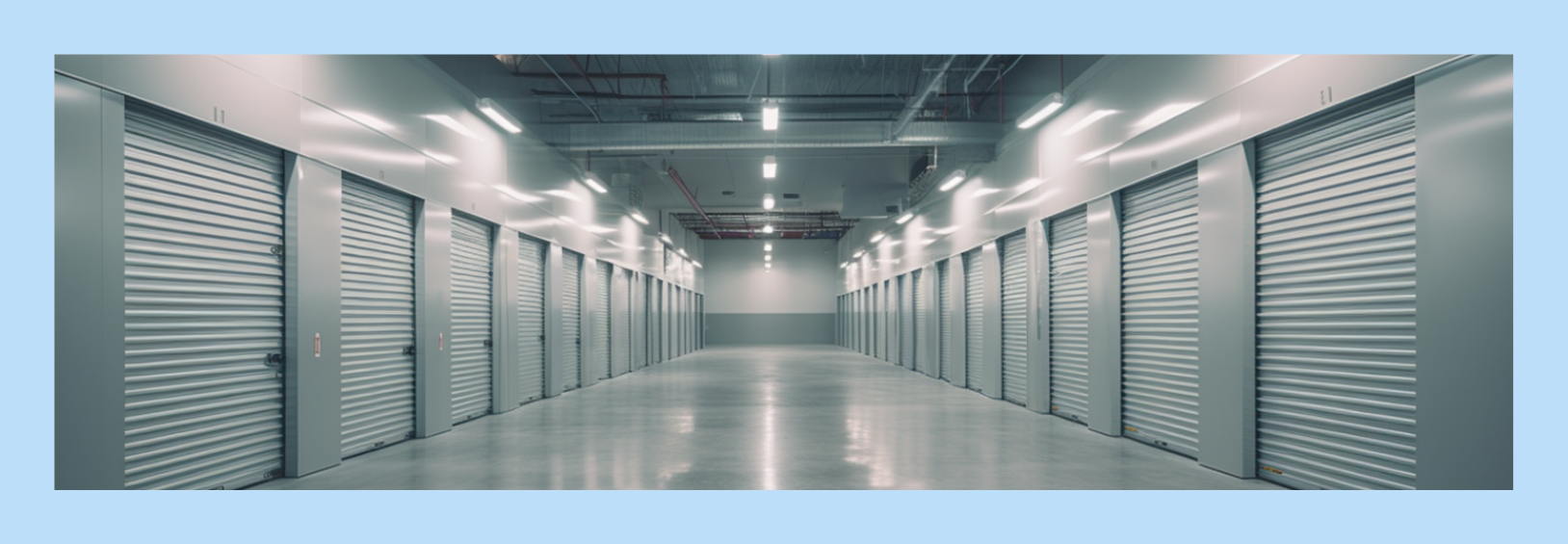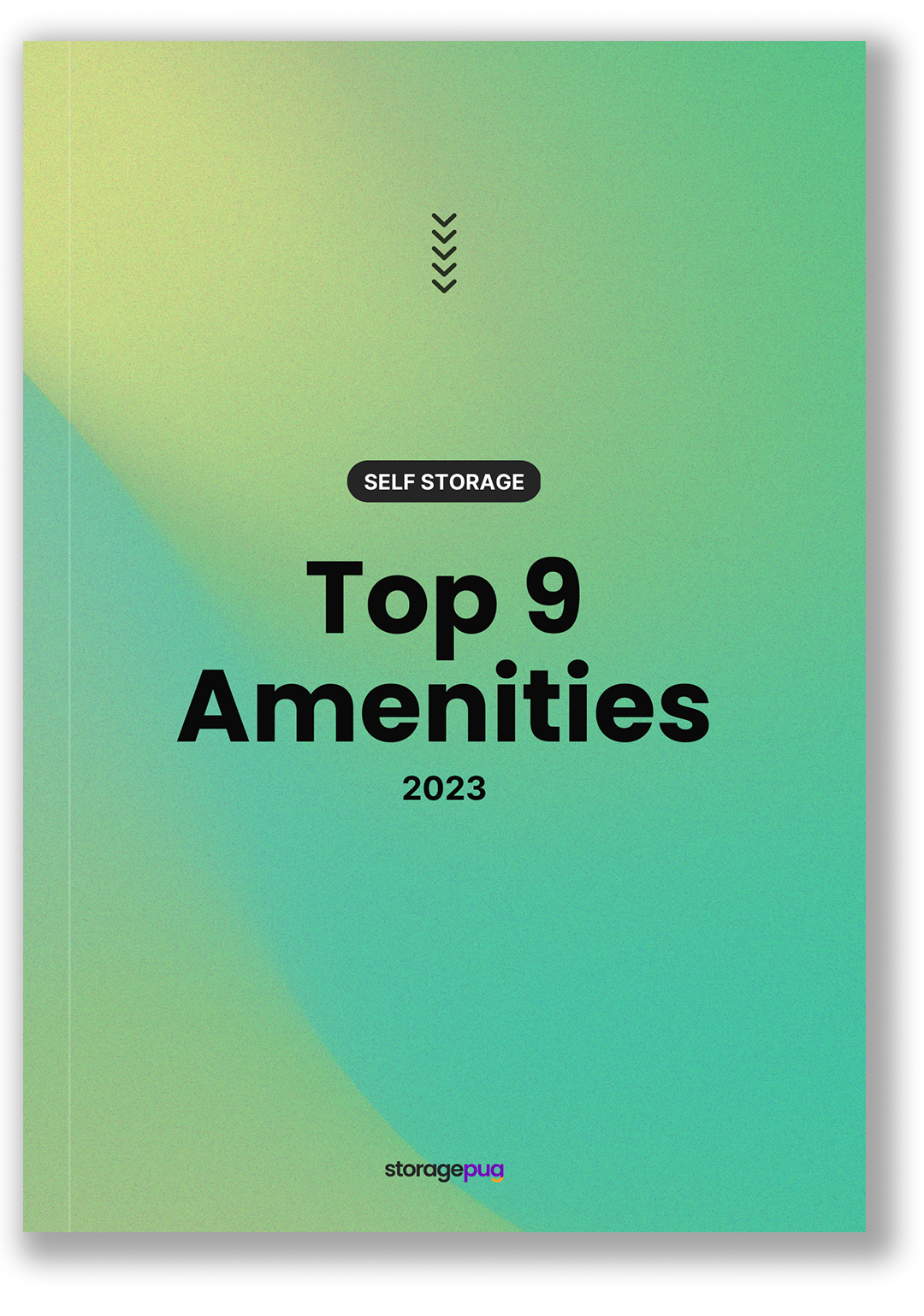Pest control may not be high on your priority list. Marketing, maintenance, hiring, cleaning, management - you’ve got a lot on your plate.
But your customers are thinking about it.
Pest control is one of the most sought-after amenities when people shop for self storage - and almost half of the customers would even pay more to rent a unit with pest control!
Tenants are storing things that are important to them. Otherwise, they’d be storing them at the dump, rather than paying us for a safe spot to stash them.
Security matters. Smart units, fences, gates, surveillance cameras, etc., etc. Storage operators spend tons of money to make their facility secure because a secure facility makes that money back.
But deterring thieves does no good if pests ruin their stuff.
According to the 2023 SSA Demand Study, over 70% of surveyed customers think pest control is important. Over 40% would pay more for pest control.

If you don’t have a pest control program at your facility, you need to get one!
We’ll break down everything you need to know about self storage pest control here so you can make your facility the best option around.

Self Storage Pest Problems
Pests (of all sorts) may seem like the type of problem you deal with when it comes up - and you certainly will have to do that.
But it pays to be aware of the potential before the “potential” is crawling all over your facility.
Here are some of the major pest problems that self storage facilities might have to deal with:
Rodents
Rats and mice can cause significant damage to stored items and they can be very difficult to keep out. They’ll feast on anything remotely organic, like fabric or packing materials, and can squeeze through holes as small as a dime.
While the other pests on this list can contribute to spreading deadly diseases, rats are the most dangerous pest when it comes to infectious diseases in humans.
They’ll leave excrement throughout the storage units and can spread deadly diseases. Preventing rodent infestations should be a very high priority.
Roaches
Cockroaches are gross.
Scratch that - everything on this list is gross. The better you tackle pest control, the less actual roaches you’ll have to deal with.
Part of the difficulty in keeping roaches (and other pests) out of your storage facility is that your tenants are almost certainly going to bring some in. Cardboard boxes, old furniture, whatever was in their shed or attic - the stuff people want to store is the same stuff roaches like to live in.
Bed Bugs
These are the nightmare bugs, literally and figuratively. Bed bugs shut down hotels, get whole homes fumigated, and are nearly impossible to eradicate. They can survive 110-degree heat and live through near freezing cold.
Bed bugs are most often found in clothing, bedding (of course), or other fabrics because that gives them room to hide and survive. As above - these sorts of items are often stored in storage facilities, so you’re going to have to deal with them at some point.
Other Bugs
Depending on your region, you’ll have more types of pests to contend with. Ants can be problematic in some spaces, while other facilities struggle with termites.
Luckily, almost all bugs can be deterred or prevented with the same methods - though you may have some odd cases that require professional advice to tackle.

Pest Problem Risk Factors
Pests can get anywhere - but they prefer Dos Equis certain environments. All pests, regardless of the type, require a few things to really get settled in. If you can control these risk factors, you can reduce the chance you have pest problems at all!
Food - Rodents and bugs aren’t looking for shelter, or a place to put their prickly feet up after a long day. Most infestations come about because these creatures are looking for food and they’ve found it on your property.
Tenants shouldn’t be storing any human food or similarly perishable organic material. While you can’t keep people from storing anything that bugs might eat, you can keep
Garbage - If you don’t get your garbage dealt with regularly, your facility can become more attractive to wandering pests. Your dumpsters and on-site trash cans should be emptied as often as is feasible so that rodents and bugs don’t have anything to eat on your property.
Vegetation - A storage unit isn’t the natural environment for any of the above - they’re not evolved to live in our convenient metal cubes, even if they can live in them just fine. Instead, they live in the bushes, landscaping, or overgrowth that butts up against your storage units. Then, as they’re foraging for food, they end up finding their way into your unit.
If you can keep vegetation away from your actual storage units, you can help reduce the occurrence of pests. This won’t eliminate the problem, of course, but it can help!
Moisture - Even alien little monsters like cockroaches need some moisture to survive. A clean, dry storage unit is much less likely to host pests than a humid one with weeds growing up around it. Facilities without an HVAC system will have a hard time regulating humidity, but you can still keep on top of other sources of moisture.
Preventing Pests in a Storage Facility
The best way to deal with pests is to not get pests.
Investing in prevention is undoubtedly more cost-effective than trying to get rid of an infestation - both in terms of the monetary cost and the cost to your reputation.
A few negative Google reviews about bed bugs or cockroaches could throw a wrench into your marketing for a long, long time.
Here are a few simple steps to take that will keep pests from infesting your facility.
Seal All Entryways
These tiny little critters can fit through almost invisible cracks - but they aren’t ghosts and they can’t walk through walls.
The better you can seal your units offer, the fewer pests you’ll find inside units. More than that, if your units are each well-sealed, pests that do find their way into one unit won’t be able to infest the adjacent units.
So get out your caulk gun and get to work! Look for any potential entryways. Specifically, you want to seal the areas where pipes go into the building, doors, windows, and around the foundation.
Be sure you’re using an appropriate sealant - you don’t want to be out here doing this again in a few months because your sealant has rotted off.
You won’t be able to make your unit completely airtight. Customers will still bring in pests, and some bugs (maybe they are ghosts) will sneak in. The better you seal them off, though, the fewer problems you’ll have.

Keep It Clean
Waste management isn’t at the forefront of anyone’s mind until the garbage starts to stink, but by then it might be too late. If humans can smell it, rats have been smelling it for days.
Dumpsters and trash cans attract pests and provide the food and shelter they need to breed.
Empty the trash into the dumpsters every day, and ensure your dumpsters are emptied as often as possible. The exact frequency will vary depending on how busy your facility is, but the goal is to not allow trash to fester on your property.
Keep Plant Growth Away from Units
Good landscaping is important for a storage facility because curb appeal is a big chunk of your physical marketing.
However, you need to keep anything from growing too close to your actual storage units. This means decorative bushes and gardens, but also weeds, brush, and anything else that pests might be hiding in.
Pesticides
Long-acting pesticides can help keep insects away from your facility - this then discourages the larger pests, such as rodents, because they often eat the insects.
There are some drawbacks, though. Some pesticides could harm the ecosystem in your area, or even harm your customers if you’re not using them properly.
For these reasons, lots of people go with a commercial pest control service. They know more about the chemicals, about the pests, and about the process.
That doesn’t mean you can’t do your own pest control at your storage facility! It’ll just take a bit more research about the options and your area.
Stored Items
Most storage operators already ban perishable items from being stored for this exact reason - but enforcing the rules is tricky.
Having someone on payroll to inspect each move-in is both expensive and not great for the customer experience, so we can rule that out.
The best way to approach this problem is to communicate clearly. Tell your customers what is and isn’t allowed - you could even add this to your rental agreement, so you have it in writing that they understand what isn’t allowed.
You can also specify what penalties apply for breaking the rules. Mostly, your only recourse is kicking them out, but if they sign something saying they won’t store food or whatever else, that should cut down on pests somewhat.

Solving Infestations
Once you’ve got an infestation, solving it becomes your highest priority. People who visit your facility and find pests are going to remember that - they’ll likely move out whenever they get an opportunity.
If they don’t move out, they’re certainly not going to recommend you to their friends and family - and self storage referrals can be a big part of your marketing strategy!
We recommend consulting a professional pest control company right away, to nip the problem in the bud (or tail, or antenna). The faster you can manage this, the better.
Keep an eye on your facility - not just for pests, but for droppings, damaged areas, roof leaks, etc. These things can indicate a problem, either current or future.
The sooner you notice, the sooner you can fix the problem! And the sooner the problem is fixed, the fewer roaches you have to deal with - or even think about.
Optimize your self storage business with these helpful articles:











